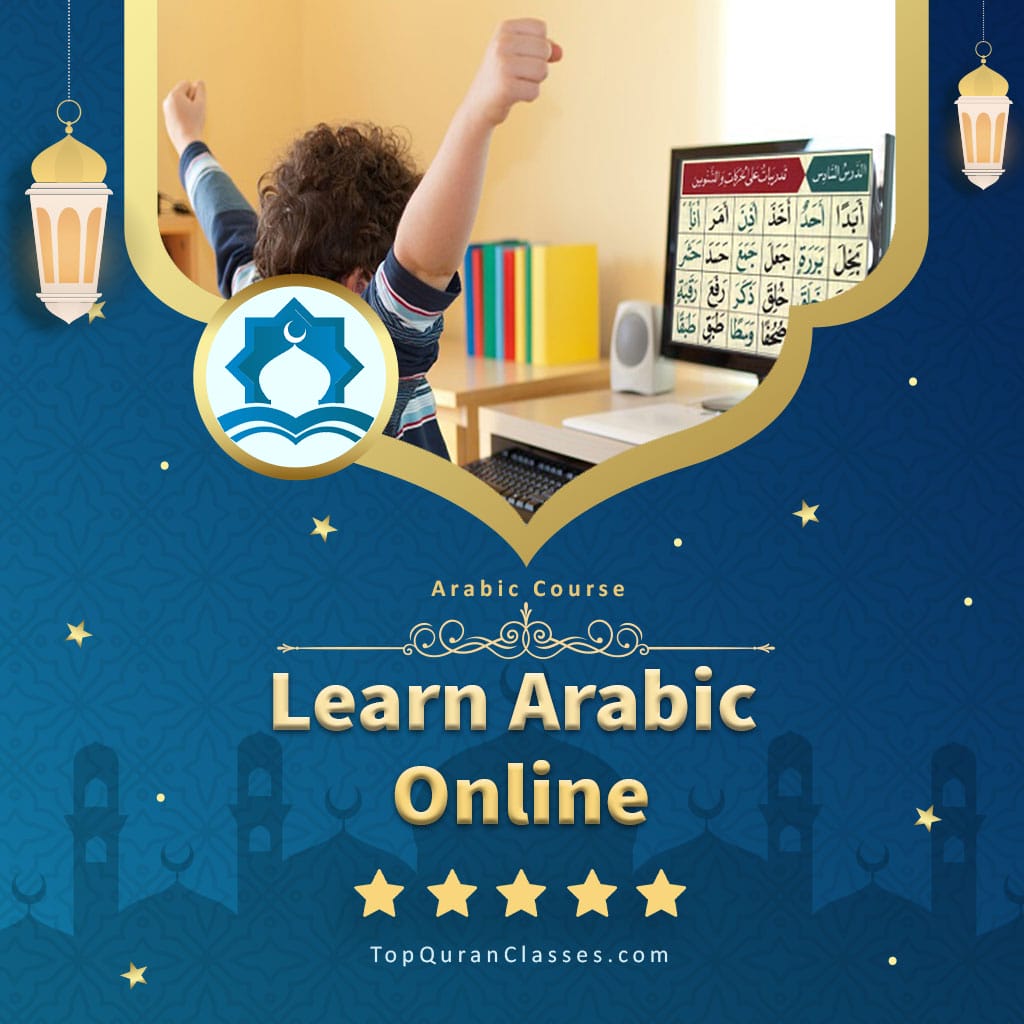ABOUT THE COURSE
What Is Quranic Arabic Language?
Quranic Arabic Language, also known as Classical Arabic, refers to the form of Arabic used in the Quran. It dates back to the 6th century A.D. and is different from the Modern Standard Arabic (MSA) commonly spoken and written today.
While MSA is used in media, schools, and politics, Quranic Arabic is more complex, poetic, and rooted in a deeper historical context. It carries nuances and expressions unique to its time, many of which are not found in everyday Arabic Language today.
Why Is Arabic So Important?
1. The Language of the Qur’an
Arabic is inseparable from the Holy Qur’an. Preserved by divine will, Arabic is the only language that fully captures the meaning, depth, and eloquence of the Qur’anic message.
2. A Language of Eloquence and Depth
Arabic is known for its richness and variety. For example, there are many ways to describe a sword or a lion — a unique feature that reflects the language’s depth and expressive power. This linguistic wealth allows for precise communication and deep understanding.
3. Essential for Understanding Hadith and Islamic Texts
Anyone wishing to truly understand the Hadith and classical Islamic literature must first understand Arabic. Without mastery of the language and its grammar, one risks misinterpreting key religious concepts.
4. The Key to Correct Interpretation
Misinterpretation often stems from a lack of knowledge in Arabic. That’s why those studying Islamic jurisprudence must understand the roots, structure, and synonyms of the language.
Why Is Quranic Arabic Language Important?
Understanding Quranic Arabic Language is essential for several reasons:
1. Authentic Recitation
The Quran contains unique symbols and pronunciation rules (tajweed) that guide readers in proper recitation. These are mostly absent in MSA.
2. Unmatched Expression
Arabic is a rich, expressive language. Quranic Arabic, in particular, conveys spiritual and emotional depth that is often lost in translation.
3. Deeper Understanding
To truly grasp the meanings and lessons of the Quran, it’s best to read it in the language it was revealed in. This ensures a more accurate and meaningful connection.
4. Preserving the Message
Learning Quranic Arabic helps preserve the original message of the Quran and supports the integrity of Islamic knowledge and tradition.
As the Quran says:
“Indeed, We have sent it down as an Arabic Quran so that you may understand.” (Surah Yusuf)
Start Learning Quranic Arabic Language Today with topquranclasses
Thanks to modern technology, learning Quranic Arabic Language has never been more accessible. You can now study Classical Arabic (Fusha) online through structured courses and qualified tutors. Platforms offer personalized learning that covers
– The Classical Arabic alphabet.
– Quranic vocabulary and grammar.
– Proper pronunciation and tajweed.
– Writing and comprehension skills.
The Quran was revealed in Arabic for a divine reason. By learning Quranic Arabic, you not only enhance your recitation but also deepen your spiritual connection to the words of Allah. Don’t let language be a barrier—take the first step today and experience the Quran as it was meant to be understood: in its original, beautiful Arabic.
Ready to begin your journey? Sign up for a Quranic Arabic Language course with Top Quran Classes and unlock the timeless wisdom of the Holy Quran.
FAQs
1. Why was the Quran revealed in Arabic Language?
The Quran was revealed in Arabic because it was the native language of the people to whom the Prophet Muhammad (peace be upon him) was sent. Arabic, with its richness, precision, and eloquence, was the most suitable language to convey the depth and beauty of the divine message.
2. What is the difference between Quranic Arabic and Modern Standard Arabic (MSA)?
Quranic Arabic (Classical Arabic) is the form used in the Quran and classical literature. MSA is a simplified, modern version used in media, education, and formal speech today. While they are similar in structure, Quranic Arabic contains older vocabulary and more complex grammar.
3. Do I need to know Arabic Language to understand the Quran?
While translations help you understand the general meaning, learning Arabic—especially Quranic Arabic—allows you to grasp the deeper meanings, linguistic beauty, and spiritual nuances that are often lost in translation.
4. Is it difficult to learn the Quranic Arabic Language?
It can be challenging at first, especially for non-Arabic speakers, but with consistent study, proper guidance, and practice, many people can learn to read and understand Quranic Arabic.




















